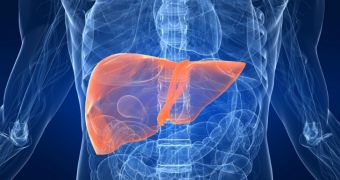Scientists working with the University of South Florida-Tampa in the United States say that, according to evidence at hand, there is more to bariatric surgery than meets the eye. Thus, such interventions can not only help people lose weight, but also benefit the liver.
After looking at liver biopsies taken from as many as 152 patients both before and 29 months following a weight-loss surgery, the researchers found that the procedure helped reduce fat deposits and inflammation in the liver.
Specifically, fat deposits on the liver were documented to have been resolved in the case of 70% of the patients that this study focused on. Lobular inflammation and chronic portal inflammation, on the other hand, were resolved in 74% of cases.
As far as steatohepatitis, i.e. inflammation of the liver occurring together with fat deposits, is concerned, the researchers say that this condition was resolved in 88% of cases, EurekAlert informs.
Besides, of the 152 individuals who were subjected to this procedure and who were suffering from early-stage liver fibrosis, roughly 62% experienced an improvement in their condition. In some cases, the surgery was found to have even resolved the fibrosis.
Commenting on these findings, Dr. Michel Murr said, “About 30 percent of the U.S. population suffers from this disease, which is increasing, and more than half are also severely obese.”
“Our findings suggest that providers should consider bariatric surgery as the treatment of choice for nonalcoholic fatty liver disease in severely obese patients.”

 14 DAY TRIAL //
14 DAY TRIAL //